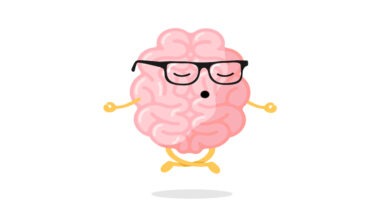The 18 secrets mentally strong people practice

Forbes came out with an article not too long ago entitled “Mentally Strong People: The 13 Things They Avoid.” It emphasized the need for mental strength as a foundation of our lives in addition to the typical physical strength and health people push. Out of this article came a list of a more positively-focused way to look at it, which is the list of habits mentally strong people do practice. We discovered it and added our own twist to this essential list.
So here it is. Take it as you need it and apply these practices as you see fit:
18 Things Mentally Strong People Do:
- They move on: rough circumstances? Hard times? Unthinkable difficulties? They don’t sit around moping, feeling sorry for themselves. They continue onward.
- They keep control: they don’t let other things take away their power, whether it’s people or situations that are challenging them. They center themselves knowing that they are in control of their lives.
- They embrace change: change is a challenge that we all take on whether we want to or not. It’s a matter of how we let change affect us, and to them, they conquer it and find new opportunities, rather than let it overwhelm them.
- They stay happy: they don’t waste energy on what they can’t affect. Instead, they find the silver lining and zero in on what makes they happy. They certainly don’t waste time on complaining, either, and making their negative words a reality to themselves.
- They are blessings to others: kindness, fairness, and speaking up for themselves and others are three tenants that they advocate with their own lives. They aren’t afraid of what other people will think about these things, either.
- They are willing to take calculated risks: living life in a bubble, too afraid to try anything, isn’t living at all. They don’t jump headfirst into danger, either, though. They look at the risks and the benefits, and then decide.
- They invest their energy in the present: being present is huge. By not expending energy on the unchangeable past or uncertain future, and instead enjoying and centering on the now, they give themselves true freedom and their best performance in the present.
- They accept full responsibility for their past behavior: mistakes happen, but they learn from them without shame, knowing they aren’t perfect and yet that they need to be responsible for all their own actions.
- They celebrate other peoples’ successes: they aren’t encumbered by jealousy, knowing they have their own power and contribution to the world. They don’t resent what other people can or have accomplished.
- They are willing to fail: failure doesn’t deter them from trying and trying with their whole hearts. Even if their endeavors aren’t successful, they don’t give up. To them, failure is a chance to improve.
- They enjoy their time alone: they don’t absolutely need to be around other every moment of the day. They are confident enough in themselves to be left alone with only themselves. Being alone isn’t scary anymore.
- They are prepared to work and succeed on their own merits: they know what they are capable of and what they seek, and they don’t expect the world to hand it to them. Instead, they seek to earn what their hearts desire.
- They have staying power: they don’t expect results immediately. They can out-wait anything patiently once they are invested.
- They evaluate their core beliefs: they look and aren’t afraid to modify as they see fit. They learn new things every day and reassess what they believe.
- They expend their energy wisely: they look at the time they have available and make use of it to the best of their ability. They don’t waste time on things that are just blackholes for their energy with nothing in return for the investment.
- They think productively: thoughts are powerful, and negative thoughts have no place in productivity. They don’t get down on themselves or let insecurity take over. Instead, they hold on to the positive and what they can take away from every situation, good or bad.
- They tolerate discomfort: they do feel those uncomfortable or difficult situations, but these do not control them. They have the ability to push through no matter what.
- They reflect on their progress every day: they make time to consider the good things that they’ve achieved, and also time to refocus on the direction they wish to go. Then, they alter their courses from there to be where they want to be, no matter how fast or slow.
Visualizing: How To Use Imagination To Manifest

Visualization is a wonderful tool for manifesting your desires and reaching your goals. Through vivid and detailed mental images, you can align your thoughts and emotions with what you want to attract. In this article, we explore how to effectively apply this technique to transform your life.
Table of Contents
- What Is Visualization And What Is It For?
- Difference Between Visualizing And Imagining
- How Visualization Works In The Law Of Attraction
- How To Do A Visualization To Manifest: Step By Step
- Practical Examples Of Creative Visualization
- Overcoming Obstacles In The Practice Of Visualization
- Combining Visualization With Other Manifestation Techniques
What Is Visualization And What Is It For?
Visualization is the process of creating vivid and detailed mental images of what you want to achieve in life. Unlike letting the mind wander, visualization involves an intentional and conscious focus on the specific goals you want to manifest. This practice is used in various disciplines, from sports to psychology, to improve performance and achieve goals.
Visualization serves to align your mind and emotions with your aspirations, helping you maintain a vibrational frequency that attracts your desires. When you visualize effectively, your brain doesn’t distinguish between what you imagine and reality, allowing you to experience positive and motivating emotions associated with achieving your goals. This process not only reinforces your determination but also prepares you to recognize and take advantage of opportunities that bring you closer to your goals.
Practicing visualization regularly fosters a positive mindset, helping you overcome obstacles and stay focused on your long-term goals. It’s a technique that, when integrated into your daily routine, has the potential to significantly transform the path of your life.
Difference Between Visualizing And Imagining
Visualizing and imagining may seem similar, but they have important differences. Imagining is a more casual process and often involves random thoughts or fantasies without a specific goal. Visualizing, on the other hand, is an intentional and focused act where you create detailed mental images with the purpose of manifesting a particular desire or goal. Visualization requires clarity, concentration, and a deep emotional connection to the desired outcome.
Although both imagination and visualization involve the use of mental images, their purpose and focus differ notably. Visualization is aimed at creating a desired reality through a structured and conscious process, while imagination arises spontaneously and without a clear objective. Visualizing requires a defined intention and a deep emotional connection to the result you want to manifest. This constant practice strengthens your determination and aligns your mind with your goals, increasing the likelihood of achieving them.

How Visualization Works In The Law Of Attraction
Visualization is a central tool in the Law of Attraction because it allows you to align your thoughts and emotions with your desires. When you visualize, you create detailed mental images of your goals, activating your mind and emotions in a way that these vibrations are projected into the universe. This practice reinforces your intentions and helps you maintain a clear and constant focus on what you want to attract.
When visualizing, it’s important to incorporate all your senses to make the experience as real as possible. Imagine not only how your goal looks, but also how it feels, smells, sounds, and tastes. This deep sensory immersion makes your mind accept the visualization as a possible reality, raising your vibration and facilitating the attraction of your desires.
How To Do A Visualization To Manifest: Step By Step
To perform an effective visualization, it’s important to follow a structured process that allows you to deeply connect with your desires and goals. Here’s a step-by-step guide to help you create powerful and detailed mental images, aligning your thoughts and emotions with what you want to manifest.
- Define a clear goal: The first step is to identify precisely what you want to manifest. The more specific and concrete your goal is, the easier it will be to visualize. Write your goal down on paper and make sure it is clear and detailed.
- Create images of the life you want to live: Once you have your goal clear, start creating mental images of what your life would look like once you’ve achieved that goal. Visualize everyday scenes that reflect your new reality. Imagine every aspect of your life with that goal accomplished.
- Refine and specify the images: Detail the images you have created, adding all possible elements. Include colors, shapes, places, and specific situations. The more detailed your visualizations are, the more real they will feel and the more effective your practice will be.
- Connect the images with the five senses: To make your visualization more vivid, incorporate all your senses. Imagine how it looks, smells, sounds, tastes, and feels to live your achieved goal. This level of detail helps your mind accept the visualization as a possible reality.
- Include secondary characters in your visualization: Imagine the people who will be with you in this new reality. Visualize how they interact with you and how they contribute to your experience. Including secondary characters adds realism and depth to your visualization, strengthening its impact.
Practical Examples Of Creative Visualization
To inspire you to create your own visualization, here are two examples: creating the movie of your life and designing an ideal day in your perfect life. These techniques will show you how you can customize visualization according to your own aspirations and goals.
-
Creating The Movie Of Your Life
Creating the movie of your life involves imagining a series of events in which you have achieved your most important goals. Visualize each scene as if you were watching a movie, with you as the main character. Imagine the details of each event, including who is with you, where you are, and what you are doing. This practice helps you establish a deep emotional connection with your goals, making them seem more achievable and real.
When practicing this technique, it’s crucial to include all the emotions and sensations you would experience while living those moments. Feel the joy, satisfaction, and pride of having achieved your dreams. The more realistic and detailed your mental movie is, the more effective it will be in aligning your vibration with the reality you want to manifest.
-
Designing An Ideal Day In Your Perfect Life
Another effective method of creative visualization is to design an ideal day in your perfect life. Imagine a typical day in which all your desires have come true. From the moment you wake up to the time you go to bed, visualize every detail of what this day would look like. Include activities, interactions, and specific accomplishments that reflect your desired life.
During this exercise, pay attention to how you feel throughout the day. Imagine the peace, joy, and satisfaction that accompany each moment. By repeating this exercise regularly, you train your mind to accept this ideal version of your life as a real possibility, strengthening your ability to attract these experiences into your daily reality.
Overcoming Obstacles In The Practice Of Visualization
Practicing visualization can present challenges, such as maintaining focus or dealing with negative thoughts. One of the most common obstacles is a lack of focus, which can be overcome by creating a quiet, distraction-free environment for your visualization sessions. Using deep breathing techniques before starting can help center your mind and set the stage for effective visualization.
Another challenge is facing doubts and limiting beliefs that may arise during visualization. To overcome this, it’s crucial to identify these negative thoughts and replace them with positive and empowering affirmations. Additionally, maintaining a regular practice and being patient with yourself makes it easier to strengthen your ability to visualize clearly and effectively. Over time, these obstacles will diminish, and your ability to manifest your desires will increase significantly.
Combining Visualization With Other Manifestation Techniques
To enhance the effects of visualization, it’s helpful to combine this practice with other manifestation techniques such as meditation, affirmations, and journaling. These complementary tools can help you deepen your visualization practice and strengthen your ability to manifest your desires more effectively.
- Meditation: Calming the mind through meditation makes it easier to focus on mental images during visualization. Meditation helps create a receptive and calm mental state, which is essential for effective visualization. Practicing meditation regularly also raises your vibrational frequency, better aligning you with your goals.
- Affirmations: Incorporating positive affirmations into your routine reinforces the beliefs and emotions that support your visualized goals. By repeating affirmations with conviction and emotion, you maintain a high, positive vibration that resonates with your desires. Affirmations act as constant reminders of your intentions, strengthening your focus and determination.
- Journaling: Keeping a journal allows you to solidify your intentions and clarify your vision by writing about your goals and visualized experiences. Journaling helps you reflect on your progress, identify any blocks, and adjust your practices as needed. This tool also provides a space to express gratitude and document the positive changes in your life.





































